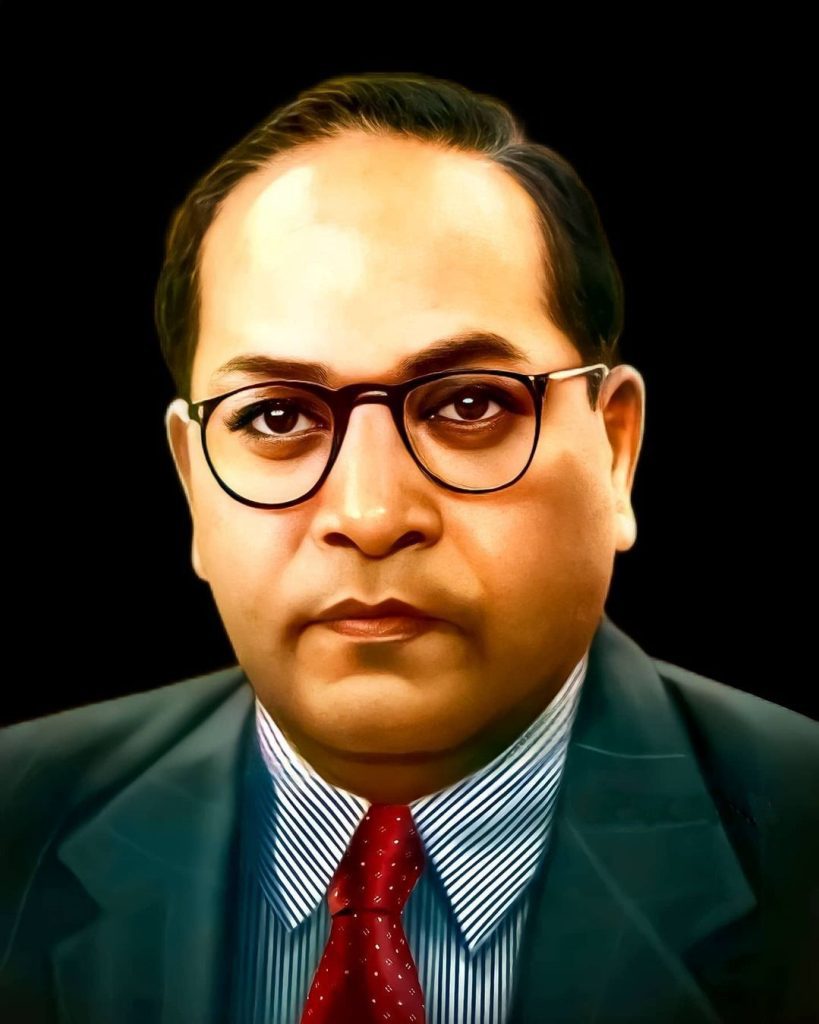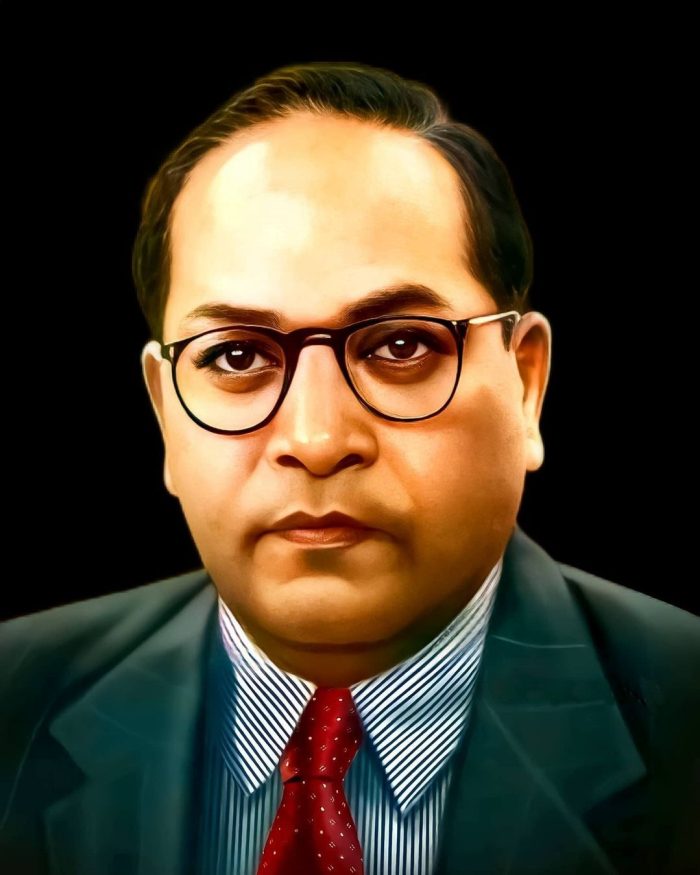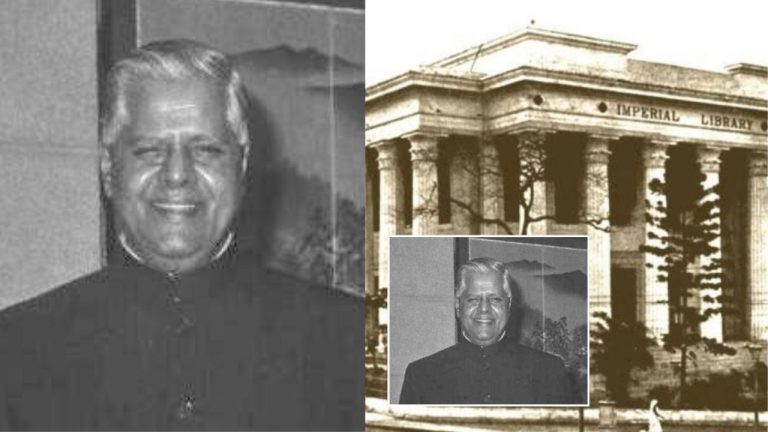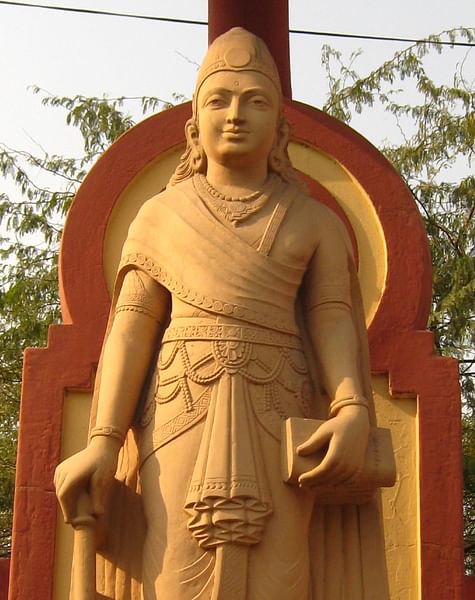Dr. B.R. Ambedkar
Dr. B.R. Ambedkar (1891-1956)
was a prominent Indian jurist, economist, politician, and social reformer. He is considered the “Father of the Indian Constitution” for his role in the drafting of the Constitution of India, which was adopted in 1950.

Ambedkar was born into a Dalit (formerly known as “untouchable”) family and faced discrimination throughout his life. He became a highly educated individual, earning multiple degrees, including a Ph.D. in economics from Columbia University. He used his education and influence to fight for the rights of the Dalits and other marginalized communities in India.
Ambedkar’s work was focused on the abolition of the caste system and the upliftment of the Dalits. He also advocated for religious and social reform, women’s rights, and secularism in India. He was also a vocal critic of the caste system and the Hindu religion’s treatment of Dalits. He converted to Buddhism along with many of his followers in 1956, which was considered a significant event in India, as it was one of the first mass conversion movement of Dalits.
Ambedkar’s ideas and activism continue to be highly influential in India, and he is considered a hero by many Dalits and marginalized communities. His statue and his birth anniversary is celebrated as a national holiday in India.
Dr. Bhimrao Ramji Ambedkar

History Of Dr. B. R. Ambedkar
Dr. B. R. Ambedkar’s political and social activism reached its peak in the 1940s and 1950s. In 1946, he was appointed as the chairman of the drafting committee for the Constitution of India, and played a key role in its development, ensuring that it protected the rights of all citizens, including the Dalits and other marginalized communities. The Constitution was adopted in 1950.
Ambedkar also continued to fight for the rights of the Dalits and other marginalized communities through his political party, the Scheduled Castes Federation, which later merged into the Republican Party of India. He also served as the first Law Minister of Independent India and later as the Chairman of the Finance Commission of India.
In 1955, Ambedkar resigned from his position as the Minister of Law and Justice, and on October 14, 1956, he converted to Buddhism along with thousands of his followers, in a ceremony at Nagpur, Maharashtra. He also wrote his last book “The Buddha and His Dhamma” which is considered his last major work.
Dr. B. R. Ambedkar passed away on December 6, 1956, but his ideas and activism continue to be highly influential in India, and he is considered a hero by many Dalits and marginalized communities. His birth anniversary is celebrated as a national holiday in India.
The Untouchables
“The Untouchables: Who Were They and Why They Became Untouchables?” is a 1948 book written by Dr. B. R. Ambedkar, the father of the Indian Constitution. It is considered one of his most important works, as it explores the history and social conditions of the Dalits (formerly known as “untouchables”) in India, and the caste system that oppresses them.
In this book, Ambedkar provides a detailed analysis of the social, economic and religious conditions of the untouchables, arguing that they are not just a marginalized group, but a group that has been oppressed and exploited for centuries due to the caste system. He shows how the caste system, which is based on birth, has been used to justify discrimination and exploit the lowest castes, including the untouchables. He also examines the history of the caste system and how it has evolved over time.
The book is considered a valuable and important work for understanding the plight of the Dalits and the caste system in India, and is widely read, studied and respected for its insight and scholarship. It is also used as a reference material for understanding the history and current state of the Dalit community in India.
Waiting for a Visa
“Waiting for a Visa” is a 1940 article written by Dr. B. R. Ambedkar while he was in the United States. This article reflects on the discrimination he faced as a Dalit and the struggles of his people in India, particularly the untouchables.
In the article, Ambedkar describes his experiences of being denied a visa to travel to England because of his caste, despite having a scholarship to study at the London School of Economics. He also reflects on the discrimination and prejudice he faced in the US, as an Indian and as a Dalit. He writes about the isolation and loneliness he felt, being away from his home country, and how he struggled to find acceptance in the US.
The article is considered a valuable and important work for understanding the struggles of the Dalits and the caste system in India, as well as the experience of being a Dalit abroad. It also highlights the hypocrisy of the British Empire, which claimed to be promoting democracy and equality, while at the same time denying rights and opportunities to certain groups of people based on their caste. The article is widely read, studied and respected for its insight and scholarship.
States and Minorities
“States and Minorities: What Are Their Rights and How to Secure Them” is a 1947 article written by Dr. B. R. Ambedkar, the father of the Indian Constitution. It was written in the context of the partition of British India and the creation of Pakistan, and lays out Ambedkar’s vision for a federal and secular India that protects the rights of minorities.
In this article, Ambedkar argues that the rights of minorities must be protected in order to maintain a stable and just society. He suggests that a federal system of government, in which power is divided between the central government and individual states, would be the best way to ensure that minority rights are protected. He also stresses the importance of secularism, so that all citizens are treated equally regardless of their religion.
The article is considered a valuable and important work for understanding Ambedkar’s vision for a just and equitable India, and his ideas on how to protect the rights of minorities in a newly independent nation. It is widely read, studied and respected for its insight and scholarship. It also provides a historical context to the current political and social situation in India, where the rights of minorities have been a major concern.
Speech at the Constituent Assembly
“Speech at the Constituent Assembly” is a speech delivered by Dr. B. R. Ambedkar on November 25, 1949, during the Constituent Assembly debates in India. The Constituent Assembly was formed to draft the Constitution of India, and Ambedkar’s speech is considered one of his most famous and important speeches.
In this speech, Ambedkar advocated for the rights of all citizens, regardless of their caste, religion, or economic status. He emphasized the importance of the Constitution in ensuring that those rights are protected, and stressed the need for a society in which all citizens are treated as equals. He also spoke about the need for a strong and secular government, and the importance of education in building a just society.
The speech is considered a valuable and important work for understanding Ambedkar’s vision for a just and equitable India, and his ideas on how to protect the rights of all citizens through the Constitution. It is widely read, studied, and respected for its insight and scholarship. It also provides a historical context to the current political and social situation in India, as well as the importance of Constitution in protecting the rights of all citizens.
Amber Fort: Discovering the Best Fort in India’s Rich History and Culture




